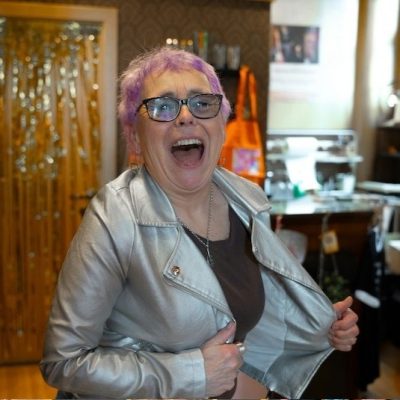Liz Leach, Associate at Think Local Act Personal, explores how wellbeing, identity, and community can reshape support for people living with dementia, ensuring lives are defined by joy, connection, and inclusion rather than diagnosis.
Think Local Act Personal is a network of people and organisations working to make care and support more personalised, so that everybody can live life their way. As part of this mission, we are working to refocus the conversation about dementia onto what matters to people living with dementia today.
‘I just want to be able to dance.’ That’s what one woman told us when we asked what matters to her wellbeing. It’s a simple wish, but it carries a powerful message. Living well with dementia is about more than medicine, services, and just getting by. It’s about joy, purpose, connection, and being recognised as the person you are.
In our recent report ‘I just want to be able to dance’, people with dementia and their families tell us what really matters, what helps, and what gets in the way. They remind us that dementia does not take away a person’s identity. Our task is to make sure they can continue to live well on their own terms. For people living with dementia, wellbeing means having a life beyond dementia, doing things that bring joy, feeling connected, and having purpose and contributing. One person told us: “Dementia is not the end of my life.” The message is clear: wellbeing is about living each day fully, not just waiting for a cure.
A diagnosis should not mean losing yourself. People want to be seen for their skills, history, and talents. One woman loved ironing because it made her feel helpful. Another man gave talks to local groups to challenge attitudes. Too often, people are treated as if they can’t contribute. An artist was offered “painting by numbers” sessions, leaving her feeling patronised.
Too many people also feel abandoned after diagnosis. One couple were told at the memory clinic: “You have dementia — now go away and live your life.” What people want is simple: a single, trusted contact who walks alongside them; someone to guide them through services and benefits; and support from diagnosis to end of life. Some areas now offer dementia navigators, hubs, and buddying schemes — but access is patchy.
Stigma remains one of the biggest barriers to wellbeing. People told us about losing friends, being told “you don’t look like you’ve got dementia,” or feeling they had to hide their diagnosis. The idea that dementia means life is “all downhill” is wrong. Campaigns like Dementia Diaries and Scotland’s Rethink Dementia show real voices and challenge harmful stories.
There is also so much that communities can do to make sure people living with dementia aren’t shut out of daily life. Practical steps include improving housing, transport, and public spaces; giving carers proper breaks and support through schemes like Shared Lives or funded breaks; making everyday places more welcoming; and creating peer groups and circles of support where people feel safe and included.
Billions have gone into searching for a cure, but people can’t wait. We need to focus on what helps people live well today. Progress is seen when people with dementia feel more connected; carers feel supported, not exhausted; communities see people as neighbours and friends; and people keep doing the things they love.
Living well with dementia isn’t about “just getting by.” It’s about recognising people as individuals. It’s about building communities where people are included, respected, and supported to live life to the fullest. If we get it right, people won’t just manage dementia — they’ll keep dancing, laughing, creating, and contributing. And that’s the kind of society we should all want to be part of.







